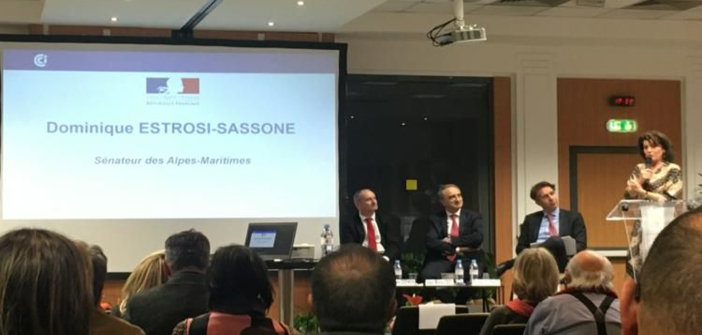The Chamber of Commerce and Industry (CCI) organized the traditional conference with the various real estate stakeholders of the Nice metropolitan area to assess the 2019 fiscal year.
The Housing Real Estate Observatory, led by its president, Jean-Marie Ebel, presents a mixed 2019 review. “For 2020, we have ambitious goals despite a 2019 that, in terms of construction, is not a success,” stated the president.
In front of attentive listeners, including the senator Dominique Estrosi, private and public actors took turns speaking at the microphone. It was a record year for the existing market, with 15,323 sales, 70% of which were priced below €4,000 per m². This is a 12% increase compared to 2018. High prices, low construction.
In a region already very dense, construction solutions are scarce. “Elections slow down projects, unfortunately, it’s never at the right time. We are at a standstill,” lamented Mathieu Marin, president of the architects’ union.
Followed by Marc Raspor, “We are aware of the specific challenges of the Côte d’Azur capital. However, the public authorities are not supporting us. All these regulations hinder our creativity. We need project-based urbanization, not regulations.”
The issues raised were acknowledged by the senator who concurred, “Elevated construction would mark a deep paradigm shift. It’s an idea worth exploring. We already have the success of the Eco-Valley, although we notice a lack of infrastructure. The fiscal policy of Bercy does not make our task easier. Yet, it generates 35 to 45 billion euros for them.”
However, the sticking point is in real estate prices. With an average price of €5,600 per m², the market is stagnating. A study commissioned by the observatory shows that the acceptable price for active households would not exceed €4,500, far from the current price. Additionally, there is a need for 5,000 housing units per year, yet only 3,900 were built last year. “We must dare to embrace density,” concluded Dominique Estrosi.
The Challenge of Tomorrow: Ecology
Despite the emergence of the Eco-Valley, the ecological impact remains considerable. The ecological issue, integrated into economic urban development, is central to the debates. “The carbon footprint is alarming. It takes 40 years to see the first effects of our choices. We are therefore setting the carbon neutrality objective for 2050,” asserted Patrick Guibbolini, director of territorial development.
To achieve this, the proliferation of solar panels and the use of low greenhouse gas-emission energies are recommended. The greening of public spaces and the development of transport are also studied solutions. Currently, municipal matters block many projects. Once these are resolved, an increase in competitiveness should be observed.
Finally, the president of the observatory, Jean-Marie Ebel, calls for dialogue to enhance the productivity of more ecological and affordable housing to support the department’s attractiveness.
Vianney Masse


